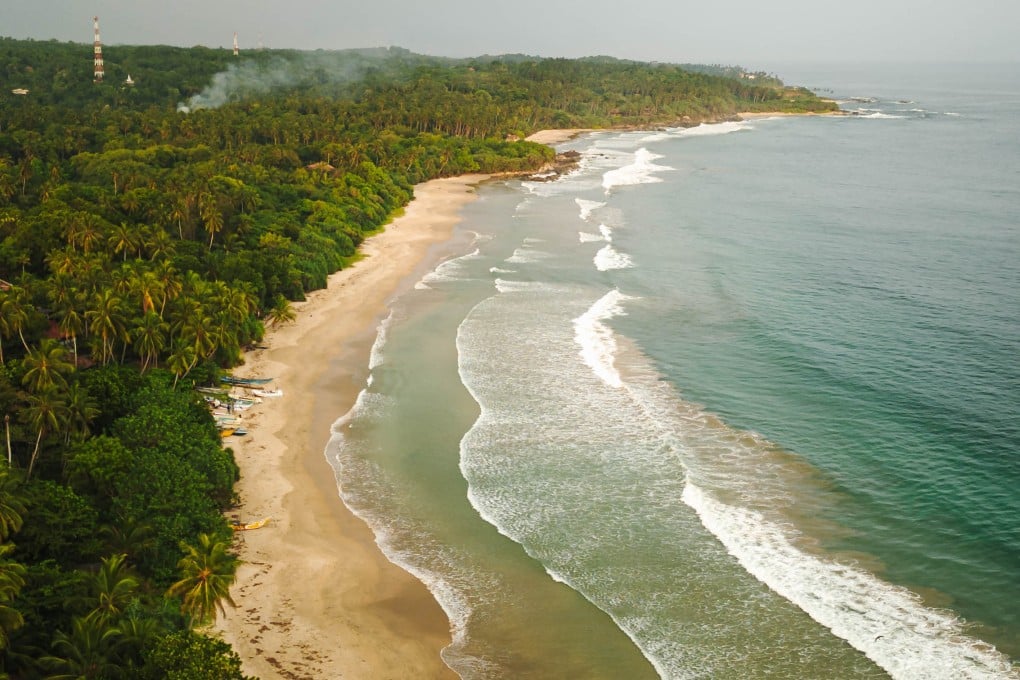Mawella in Sri Lanka unites to keep its beach pristine as tourism boom beckons – ‘we don’t want to trash this place’
- Mawella on Sri Lanka’s southern coast is evolving from a cluster of fishing villages to a tourism hotspot, but pollution and climate change threaten its beach
- A harbour project has caused damage to the beach, and natives and newer residents have joined forces to protect their paradise and welcome visitors responsibly

Mawella Beach is only six degrees north of the equator, so the sun is glowing high above the coconut palms at 7.30am, and the air shimmers.
Near the southern end of the beach, a dozen wiry men are attempting to launch their gaudily painted fishing boat, known as an oruwa. They lean on thick bamboo poles threaded through the narrow hull.
Edging the heavy vessel towards the sea is laborious work – the boat seems reluctant to make the short journey, as though exhausted from fishing – but trailers, ropes or wheels are never used.
An authoritative old man wearing a faded purple sarong is directing the half-hearted effort. His complexion matches his faux-leather flying helmet.

He beckons me over and I join two other Westerners, dressed in swimming attire, in assisting the crew. We lean against the bamboo poles as instructed, shoulder to shoulder with the fishermen, and make grunting and heaving sounds to show willing.